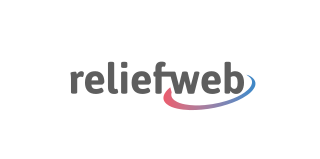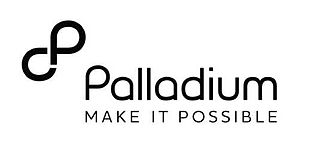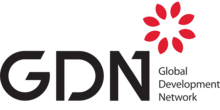
The World Health Organization (WHO) is a specialized agency of the United Nations responsible for international public health. It is headquartered in Geneva, Switzerland, and has six regional offices and 150 field offices worldwide.
The knowledge economy, or knowledge-based economy, is an economic system in which the production of goods and services is based principally on knowledge-intensive activities that contribute to advancement in technical and scientific innovation. The key element of value is the greater dependence on human capital and intellectual property as the source of innovative ideas, information and practices. Organisations are required to capitalise on this "knowledge" in their production to stimulate and deepen the business development process. There is less reliance on physical input and natural resources. A knowledge-based economy relies on the crucial role of intangible assets within the organisations' settings in facilitating modern economic growth.

The Monetary Authority of Singapore or (MAS), is the central bank and financial regulatory authority of Singapore. It administers the various statutes pertaining to money, banking, insurance, securities and the financial sector in general, as well as currency issuance and manages the foreign-exchange reserves. It was established in 1971 to act as the banker to and as a financial agent of the Government of Singapore. The body is duly accountable to the Parliament of Singapore through the Minister-in-charge, who is also the Incumbent Chairman of the central bank.
Technology transfer (TT), also called transfer of technology (TOT), is the process of transferring (disseminating) technology from the person or organization that owns or holds it to another person or organization, in an attempt to transform inventions and scientific outcomes into new products and services that benefit society. Technology transfer is closely related to knowledge transfer.
ODI, formerly the Overseas Development Institute, is a global affairs think tank, founded in 1960. Its mission is "to inspire people to act on injustice and inequality through collaborative research and ideas that matter for people and the planet." It does this through "research, convening and influencing, to lead new thinking and future agendas to deliver transformational change." Its chair is Suma Chakrabarti.

ReliefWeb (RW) is a humanitarian information portal founded in 1996. As of July 2023, it hosts more than one million humanitarian situation reports, press releases, evaluations, guidelines, assessments, maps and infographics. The portal is an independent source of information, designed specifically to assist the international humanitarian community in effective delivery of emergency assistance or relief. It provides information as humanitarian crises unfold, while emphasizing the coverage of "forgotten emergencies" at the same time.
The Economics Education and Research Consortium (EERC) is an organization founded with the purpose of improving economics education and research within the Commonwealth of Independent States.
Alzheimer’s Disease International (ADI) is a not-for-profit, international federation of Alzheimer and dementia associations from around the world. The organization is in official relations with the World Health Organization (WHO). ADI advocates for people living with Alzheimer’s disease and all other types of dementia.
David Bruce Audretsch is an American economist. He is a distinguished professor at the School of Public and Environmental Affairs (SPEA) at Indiana University and also serves as director of the SPEA International Office, Ameritech Chair of Economic Development, and director of SPEA's Institute for Development Strategies (IDS). He is co-founder and co-editor of Small Business Economics: An Entrepreneurship Journal, and also works as a consultant to the United Nations, the World Bank, the OECD, the EU Commission, and the U.S. Department of State. He was the director of the Entrepreneurship, Growth and Public Policy Group at the Max Planck Institute of Economics in Germany from 2003 to 2009. Since 2020, he also serves as a distinguished professor in the Department of Innovation Management and Entrepreneurship at the University of Klagenfurt.

The Institute of Development Studies (IDS) is a research and learning organisation affiliated with the University of Sussex in Brighton, England, and based on its campus in Falmer, East Sussex. It delivers research and teaching in the area of development studies.
Devex is a social enterprise and media platform for the global development community. It aims to connect with and inform development, health, humanitarian, and sustainability professionals through news, business intelligence, funding and career opportunities related to international development. As an independent news organization, Devex employs more than 100 staff members in different locations, including Washington, D.C., where the organization is headquartered. It also maintains offices in Barcelona and Manila.
Global public policy networks (GPPNs) are non-state entities that bring together actors from various sectors including governments, international organizations, civil society and business to address global issues. They may be legally incorporated or may operate more informally however they aim to take on an international role, even without the formal status of an international or multilateral organization/institution. These networks are comprised by actors in many sectors and levels including civil society, government and government agencies, industry and business, research and education and multilateral organizations and institutions. Global public policy network activities cover the range of steps in the policy process, beyond policy proposals or lobbying, including agenda setting, policy formulation, negotiation, rule making, coordination, implementation and evaluation. Their expertise can often play an important role in global debates and norm establishment.

International Management Institute (IMI) Kolkata is a private business school located in Kolkata, India. It laid its foundation in 2010. The Institute started functioning in the year 2011 with its flagship Post Graduate Diploma in Management Programme accredited by the National Board of Accreditation (NBA). In 2017, the Institute of six years also obtained the approval from All India Council for Technical Education to launch the Fellow Programme in Management (FPM), a Ph.D. level programme. IMI Kolkata's two-year full time PGDM programme is also accorded equivalence with Master of Business Administration (MBA) Degree by the Association of Indian Universities(AIU). The first fresh batch of students at IMI Kolkata graduated in the year 2013. Campus placements at IMI Kolkata shot up in the year 2014.

The International Development Law Organization (IDLO) is an intergovernmental organization dedicated to the promotion of the rule of law.

The World Bank is an international financial institution that provides loans and grants to the governments of low- and middle-income countries for the purpose of pursuing capital projects. The World Bank is the collective name for the International Bank for Reconstruction and Development (IBRD) and International Development Association (IDA), two of five international organizations owned by the World Bank Group. It was established along with the International Monetary Fund at the 1944 Bretton Woods Conference. After a slow start, its first loan was to France in 1947. In the 1970s, it focused on loans to developing world countries, shifting away from that mission in the 1980s. For the last 30 years, it has included NGOs and environmental groups in its loan portfolio. Its loan strategy is influenced by the United Nations' Sustainable Development Goals, as well as environmental and social safeguards.

Palladium is an international development sector advisory, management and implementation firm, representing the combination of seven prior companies: GRM International, Futures Group, Palladium, the IDL Group, Development & Training Services, HK Logistics and CARANA Corporation. As of October 2016, Palladium employs over 2,500 persons operating in 90 countries. At the end of 2015, Palladium International was the fourth-largest private sector partner for the UK Government's Department for International Development (DFID). During 2011, Palladium International members Futures Group and Carana were USAID's fourteenth and sixteenth largest private sector partners, respectively. At the end of 2012, GRM International was the third largest private sector partner for AusAID.
Diane L. Stone is an Australian-British academic. Her research and publication addresses the influence of ideas and expertise on policy, the political economy of higher education; the ‘new diplomacy’; policy networks; international philanthropy; think tanks and global governance.
John Norman Lavis is a Canadian physician based in Toronto, Ontario. He is a tenured professor in the Department of Health Evidence and Impact at McMaster University, where he founded and directs the McMaster Health Forum. He is co-lead of Rapid-Improvement Support and Exchange (RISE).

The Youth Café is a not-for profit pan-African youth organization that was founded in 2012 and works with young people in Africa and around the world to foster community resilience, propose innovative solutions, drive social progress, enable youth empowerment and inspire political change. The Youth Café is headquartered at Kitisuru Gardens, in Nairobi, Kenya.

The African Ministers' Council on Water (AMCOW) (French: Conseil des Ministres Africains Chargés de L'eau), is considered by the African Union as the support mechanism for its Specialised Technical Committee (STC) to drive achievement in the water and sanitation sectors. It is a regional development network of 55 African countries that advances socioeconomic development and the abolition of poverty through effective cooperation, management of water supply services, and provision of the continent's water resources to its members.










